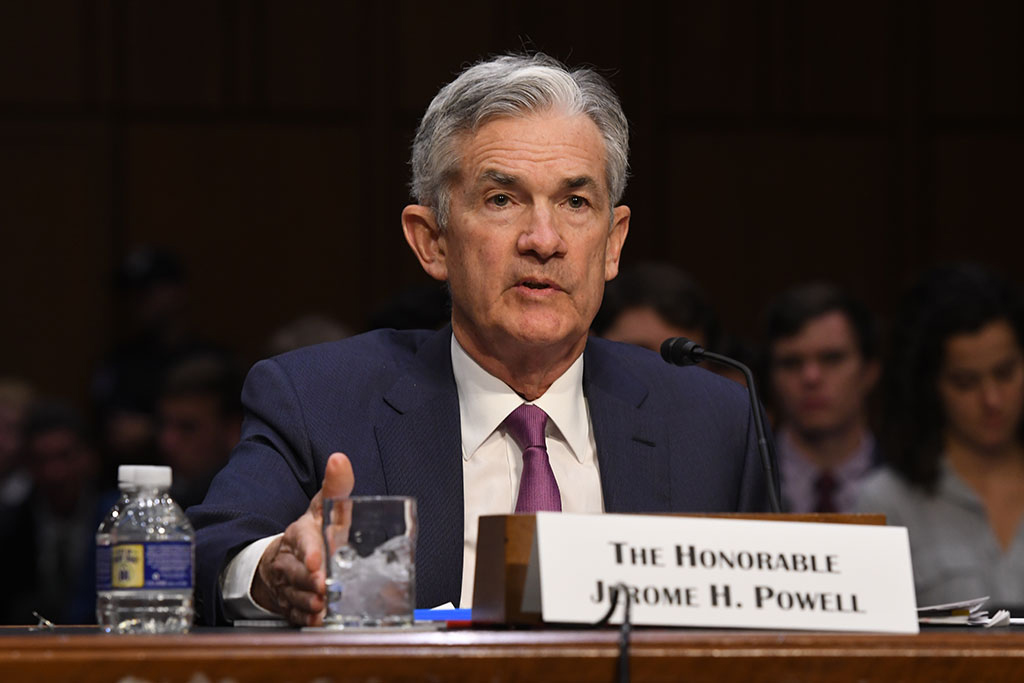According to the results of the two-day meeting, the US Federal Reserve Market Committee kept the key rate at 2–2.25% per annum. The last time (the third since the beginning of the year) the rate was raised in September (in March and June before this). In 2017, the rate was raised three times - a total of 0.75 percentage points.
In a November 8 statement, the Fed noted the “strong pace” of improving the US economy, noting separately the growth in the number of jobs and consumer activity, but also the slowdown in investment growth.
In addition, the committee pointed out that inflation, including excluding food and energy, remains close to the 2% benchmark. The regulator retained the wording that “a further gradual increase in interest rates will reflect an improvement in the economy” (in September, for the first time, it abandoned the phrase that monetary policy remains stimulating). Growth rates in the United States in the third quarter were 3.5% (versus 4.2% in April-June), the unemployment rate fell to 3.7%, while the increase in wages in October could exceed 3%.
So far, according to the schedule (it will be updated only in December), the majority of committee members believe that this year the rate can be increased four times in aggregate, in 2019 three, to 3–3.25%. In 2020, rates could rise to 3.5–3.75%.
Experts do not expect the Fed to change in the near future, however, they point to the risks of a soon deceleration of the US economy. Capital Economics also expects a further decline in the stock market (since the beginning of October, the S&P 500 has lost more than 10%), attributing this to investor anxiety about a decline in activity in cyclical sectors of the economy (in particular, sales of new homes are falling, growth of capital investments has slowed to 0.8 % yr in the third quarter). According to experts of the center, the Fed will stop raising rates next year. The Washington Institute of International Finance (IIF) notes that, in contrast to previous sales periods, now the demand for reliable assets (government bonds) has grown slightly due to the increased volume of borrowings and rising interest rates.
source: bloomberg.com
In a November 8 statement, the Fed noted the “strong pace” of improving the US economy, noting separately the growth in the number of jobs and consumer activity, but also the slowdown in investment growth.
In addition, the committee pointed out that inflation, including excluding food and energy, remains close to the 2% benchmark. The regulator retained the wording that “a further gradual increase in interest rates will reflect an improvement in the economy” (in September, for the first time, it abandoned the phrase that monetary policy remains stimulating). Growth rates in the United States in the third quarter were 3.5% (versus 4.2% in April-June), the unemployment rate fell to 3.7%, while the increase in wages in October could exceed 3%.
So far, according to the schedule (it will be updated only in December), the majority of committee members believe that this year the rate can be increased four times in aggregate, in 2019 three, to 3–3.25%. In 2020, rates could rise to 3.5–3.75%.
Experts do not expect the Fed to change in the near future, however, they point to the risks of a soon deceleration of the US economy. Capital Economics also expects a further decline in the stock market (since the beginning of October, the S&P 500 has lost more than 10%), attributing this to investor anxiety about a decline in activity in cyclical sectors of the economy (in particular, sales of new homes are falling, growth of capital investments has slowed to 0.8 % yr in the third quarter). According to experts of the center, the Fed will stop raising rates next year. The Washington Institute of International Finance (IIF) notes that, in contrast to previous sales periods, now the demand for reliable assets (government bonds) has grown slightly due to the increased volume of borrowings and rising interest rates.
source: bloomberg.com





